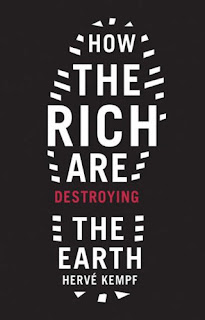Another great philosopher Rene Descartes came up with the concept of the separation between humans and nature.
“The quest for pure objectivity requires a kind of godlike detachment on the part of the observer (humans) from the observed (nature). By him saying this it in some way made nature look like a possession, something that could be taken advantage of and controlled. As Descartes put it, the whole point was to “render ourselves the lords and possessors of nature” (Descartes)
As humans today and the position that we are in within nature brings up the question, are we still actually part of nature, or as Craig Hawkins likes to put it “to what degree are humans part of nature?” he talks about humans are becoming disconnected from nature, and it isn’t only relevant now, it was relevant from the day that man first discovered fire, then followed by every other discovery and invention. Hawkins says that all our technological progression comes from our discoveries and these discoveries have begun to negatively effect human’s connection to nature.
“Mankind is beginning to wrap itself in a technological bubble, that separates us from the more hostile elements of nature” Hawkins.
Although on the other hand you have the biology of our part in nature, where our bodies are still attacked by viruses, our biology still involves us as natural beings, so to that extent we are still part of nature, but hopefully that’s not the only part that factor that puts us in line with nature.
So according to Hawkins his answer is yes, humans, to a degree, are still part of nature, but he says that this part that we’re involved in is getting smaller and could collapse one day into a “technological singularity” where at that point we will be completely disconnected from nature.
“The fact that we are still part of nature does not mean that we always will be. Our technological revolutionary progress is very rapidly outstripping natures slow evolutionary processes and we are more and more encasing ourselves in a technological bubble beyond nature.”
Another view is by Silva Payne- “Humans often set themselves apart from nature as if we are in no way connected. Of course this is not the case at all; we are all living organisms and cannot exist in a vacuum. We may think that we are better than, or the master of, nature but when ice storms, hurricanes or tsunamis occur we have to concede that we are not. Nature offers a lot of lessons for us to learn, if we have the wisdom to do so.”
She brings in the idea that at the end of the day nature is much more powerful than we can comprehend, that nature holds knowledge for humans that we can greatly benefit from. She suggests we may think that we are above nature because we think we are above it but against that there comes a point in nature where we are not in control.
Another similar opinion is one from author Bob Zimmerman. He claims, “We are still part of nature even if we destroy the rest of nature to benefit ourselves.” He looks at human involvement in nature as “survival of the fittest” and our place in the food chain, being the highest. I do not necessarily agree with his view, he isn’t taking in the fact that humans are massive in their amounts, larger than any animal population. We use technology to sustain us, not nature. We have begun to rely more on technology than we do nature- so his opinion is not taking in the fact that there is an unfair advantage. Survival of the fittest would be relevant if we were actually closely involved in nature, which I believe we aren’t.
Another Author, Jamerson Rising, brings up the concept that the biggest problem man causes actually arises when humans start thinking that they are above or not part of nature. “That has never been true and never will be. Man is a member of the animal kingdom, and until that changes, man will be part of nature.” He suggests that it is rather more appropriate to ask what makes us different to other animals. But in my opinion this is already counteracting Risings argument. What makes us different is that we exploit and try and control nature, how does that make us part of the animal Kingdom if our actions are not even natural.
Rising continues with his argument, saying that humans have this idea that they are so powerful that they are influencing and changing climates around the globe. He says that this shouldn’t be mankind’s primary concern; the attention should rather be directed towards the enormous amount of pollution, which is being “spewed” in the environment. “Are human beings and mankind still part of nature? They have never stopped being part of nature, and are very unable to do so, regardless of how much arrogance and egotism they can muster. For good or bad, all animals act in accordance to their nature, and unfortunately, the same is true for mankind. The biggest key is the question; will mankind ever realize that he is part of nature? The answer to that one is still being determined.”






